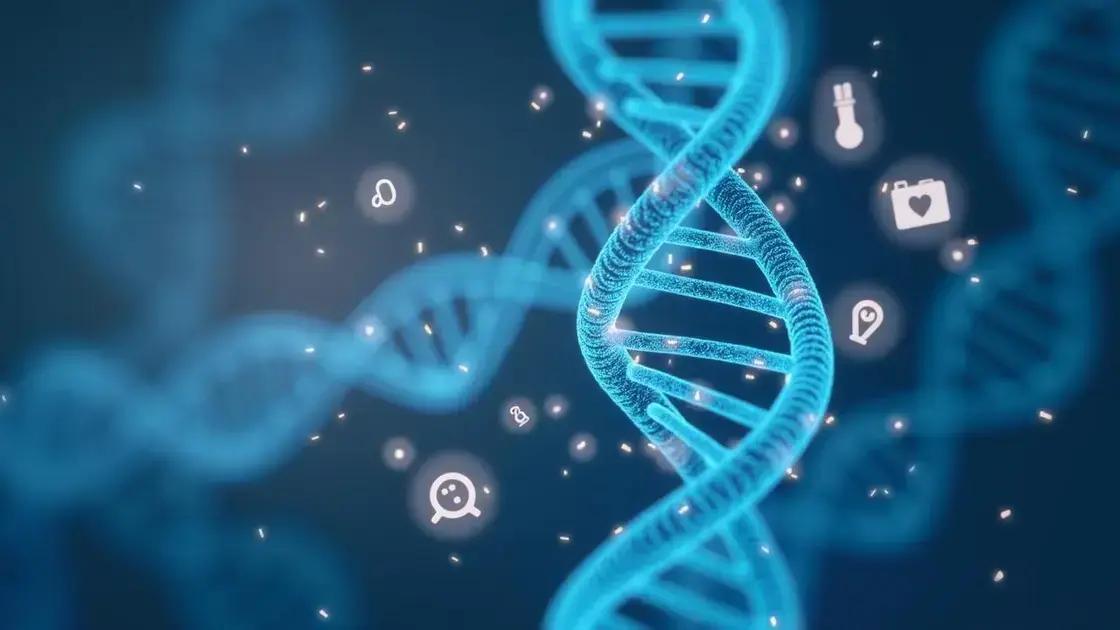Genetics play a significant role in erectile dysfunction (ED), influencing factors such as blood flow and hormone levels. Effective management of ED can include lifestyle changes like a healthy diet and exercise, as well as medical options such as oral medications and therapy. Addressing emotional well-being is also crucial, as anxiety and stress can contribute to ED. Seeking professional help is important for persistent issues.
Erectile dysfunction (ED) significantly affects many men, and understanding how genetics influence erectile dysfunction can empower you with key insights. Many factors, including genetic predispositions, play a role in leading to ED. This article will explore the genetic links to this condition, lifestyle changes you can implement, medical options available, and ways to manage the emotional aspects associated with erectile challenges.
Understanding Erectile Dysfunction

Erectile dysfunction (ED) affects a significant number of men, making it a common concern. Understanding erectile dysfunction involves recognizing its causes, symptoms, and impact on relationships and health.
What is Erectile Dysfunction?
ED is defined as the inability to maintain an erection firm enough for sexual intercourse. This condition can occur occasionally or frequently and may be influenced by various physical and psychological factors.
Symptoms of ED
Common symptoms include trouble getting an erection, difficulty maintaining an erection, or reduced sexual desire. If these symptoms persist, it is important to seek medical advice.
Causes of Erectile Dysfunction
ED can stem from medical conditions such as diabetes, heart disease, and hormonal imbalances. Psychological factors, like depression and anxiety, can also contribute. Lifestyle choices, including smoking and excessive alcohol consumption, may worsen the condition.
Impact on Quality of Life
The effects of ED can go beyond physical health. It often leads to emotional issues like low self-esteem, relationship troubles, and anxiety. Open communication with partners and healthcare professionals is crucial.
When to Seek Help
If you experience persistent issues with erections, consult a healthcare provider. Early intervention can lead to better outcomes and improve overall well-being.
The Role of Genetics

Genetics play a crucial role in understanding erectile dysfunction (ED). The role of genetics involves examining how inherited traits can affect sexual health.
Genetic Predisposition
Research shows that men with a family history of erectile dysfunction may be more likely to experience this condition themselves. Genetic factors can influence blood flow, hormone levels, and nerve function, all of which are essential for achieving an erection.
Influence of Specific Genes
Certain genes have been identified that may directly impact mechanisms related to ED. For example, variations in genes that regulate nitric oxide production can affect blood vessel function, potentially leading to difficulties in maintaining an erection.
How Genetic Testing Can Help
Genetic testing can provide insights into personal risk factors associated with ED. Understanding one’s genetic makeup can inform treatment options and lifestyle changes to help mitigate symptoms.
Environmental Factors and Genetics
While genetics is important, environmental factors also play a significant role. Lifestyle choices such as diet, exercise, and smoking can interact with genetic predispositions to either exacerbate or alleviate erectile dysfunction.
The Future of Genetic Research
Ongoing research aims to uncover more about how genetics influences ED. This knowledge could lead to personalized treatments and strategies for prevention, enhancing overall men’s health and well-being.
Lifestyle Changes to Mitigate ED

Making lifestyle changes can significantly help mitigate erectile dysfunction (ED). These changes can enhance overall health while improving sexual function.
Healthy Diet
Eating a balanced diet rich in fruits, vegetables, whole grains, and lean proteins contributes to better blood flow. Foods that are high in antioxidants, such as berries and nuts, may also help protect blood vessels, which is crucial for maintaining erections.
Regular Exercise
Engaging in regular physical activity can improve circulation, reduce stress, and boost testosterone levels. Aim for at least 30 minutes of moderate exercise most days. Activities like walking, running, or swimming can also enhance mood and overall well-being.
Avoiding Tobacco and Excessive Alcohol
Quitting smoking is essential, as tobacco can restrict blood flow and contribute to ED. Limiting alcohol consumption is also important, as excessive drinking can lead to temporary or chronic erectile dysfunction.
Managing Stress
High levels of stress and anxiety can negatively impact sexual performance. Practicing relaxation techniques such as meditation, yoga, or deep breathing can help reduce stress and improve erectile function.
Getting Enough Sleep
Quality sleep is vital for good health. Lack of sleep can lead to hormonal imbalances and increase stress, both of which can contribute to ED. Aim for 7-9 hours of restful sleep each night.
Medical Options for ED

There are various medical options for erectile dysfunction (ED) that can help restore sexual function. These options range from medications to therapies.
Oral Medications
One of the most common treatments involves oral medications such as sildenafil (Viagra), tadalafil (Cialis), and vardenafil (Levitra). These drugs improve blood flow to the penis, making it easier to achieve and maintain an erection. It’s important to consult a doctor before starting any medication to determine the best option for you.
Psycho-Social Therapy
If psychological factors contribute to ED, therapy can help. Counseling or therapy can address issues such as depression, anxiety, and relationship problems. Speaking with a mental health professional can lead to significant improvements.
Vacuum Erection Devices
Vacuum erection devices (VEDs) can be effective in helping achieve an erection. These devices create a vacuum that increases blood flow to the penis, and a ring is placed at the base to maintain the erection.
Penis Injections
Some men may opt for penile injections, which involve injecting medication directly into the penis. This method can provide an erection within minutes. Again, discussing this option with a healthcare provider is essential to ensure safety and effectiveness.
Surgery
In severe cases, surgical options exist, such as penile implants. This procedure involves placing devices inside the penis to allow for physical erections. Surgical options are typically considered when other treatments have failed.
Managing Emotional Well-being

Managing emotional well-being is crucial for men dealing with erectile dysfunction (ED). Addressing emotional concerns can significantly improve overall sexual health.
Recognizing Feelings
Many men experience feelings of embarrassment, anxiety, or depression when facing ED. Recognizing and acknowledging these emotions is the first step toward healing. It’s essential to know that these feelings are common and valid.
Open Communication
Talking openly with partners about ED can relieve emotional stress. Honest discussions help couples understand each other’s feelings and can strengthen relationships. It is often easier to navigate ED when both partners feel supported.
Seeking Professional Help
If emotional issues persist, seeking help from a therapist or counselor can be beneficial. Mental health professionals specialize in helping individuals cope with emotional challenges and can offer strategies to improve mental well-being.
Practicing Mindfulness
Mindfulness techniques, such as meditation or yoga, can help manage stress and improve emotional health. These practices encourage living in the moment and can reduce anxiety surrounding sexual performance.
Building Self-Esteem
Engaging in activities that build confidence and self-esteem can positively impact emotional well-being. This might include hobbies, exercise, or volunteering, which can help shift focus from ED to personal strengths and accomplishments.
Understanding the Connection between Genetics and ED
Understanding how genetics influence erectile dysfunction (ED) provides valuable insights into this common condition. Recognizing the physical, emotional, and psychological factors involved is essential for effective management.
Implementing lifestyle changes, exploring medical options, and managing emotional well-being are all important steps toward improving sexual health. Open communication with partners and professionals can foster a supportive environment.
By taking a comprehensive approach that addresses genetics, lifestyle, and emotional aspects, men can effectively manage ED and enhance their quality of life. It is crucial to take the time to explore these factors and seek the necessary support.
FAQ – Frequently Asked Questions about Erectile Dysfunction
What is erectile dysfunction?
Erectile dysfunction (ED) is the inability to achieve or maintain an erection suitable for sexual intercourse. It can be caused by various physical and psychological factors.
How do genetics influence erectile dysfunction?
Genetics can play a role in ED by affecting blood flow, hormone levels, and nerve function, making some men more susceptible to this condition.
What lifestyle changes can help mitigate ED?
Adopting a healthy diet, exercising regularly, quitting smoking, reducing alcohol intake, managing stress, and getting enough sleep can all help improve erectile function.
What medical options are available for treating ED?
Common medical options for ED include oral medications, vacuum erection devices, penile injections, and in severe cases, surgical options like penile implants.
How can emotional well-being impact erectile dysfunction?
Emotional factors such as anxiety, depression, and low self-esteem can contribute to ED. Managing these feelings through communication and therapy is important for recovery.
When should I seek help for erectile dysfunction?
If you experience persistent issues with erections or emotional distress related to ED, it is essential to consult a healthcare professional for evaluation and appropriate treatment.













